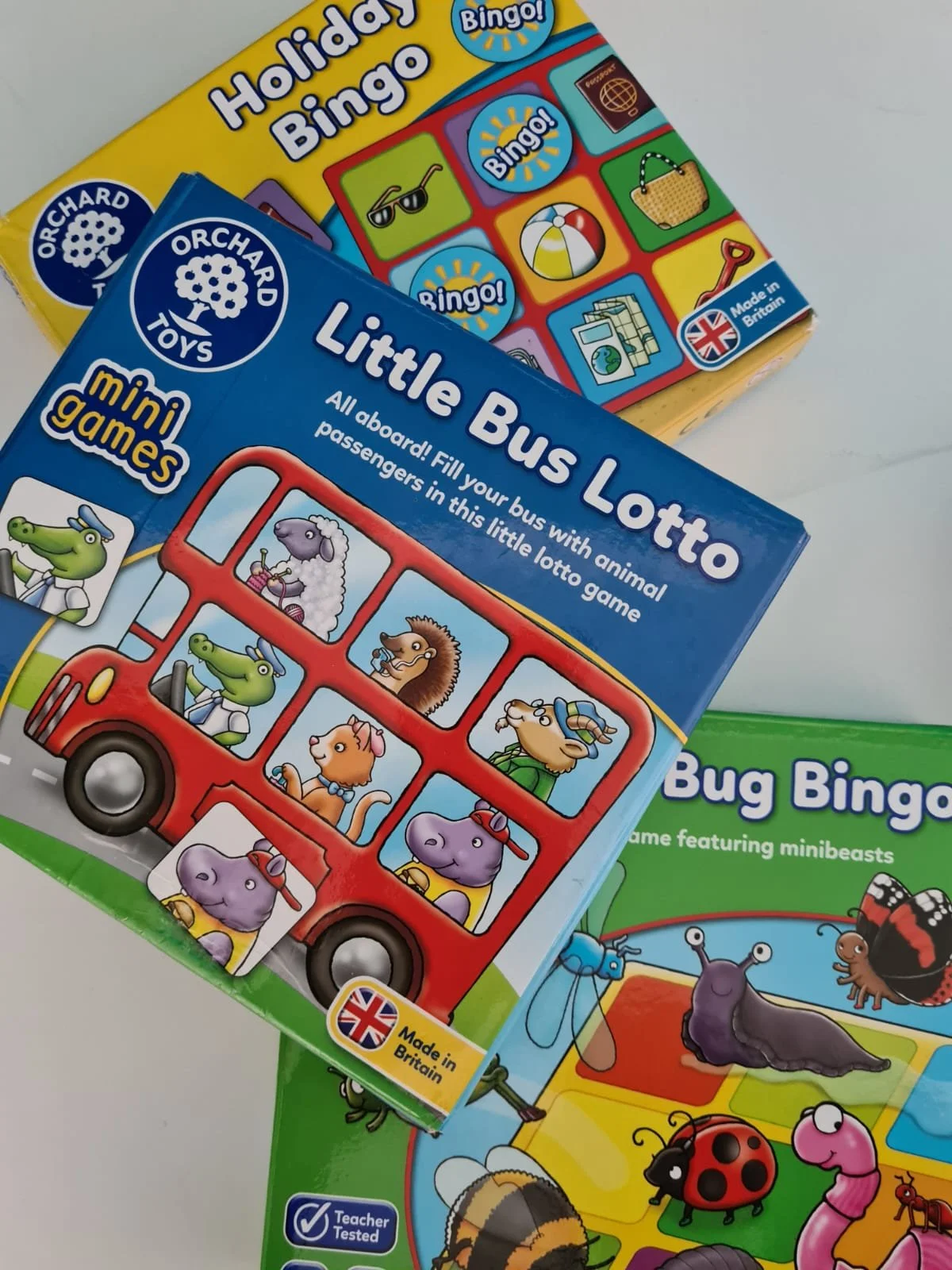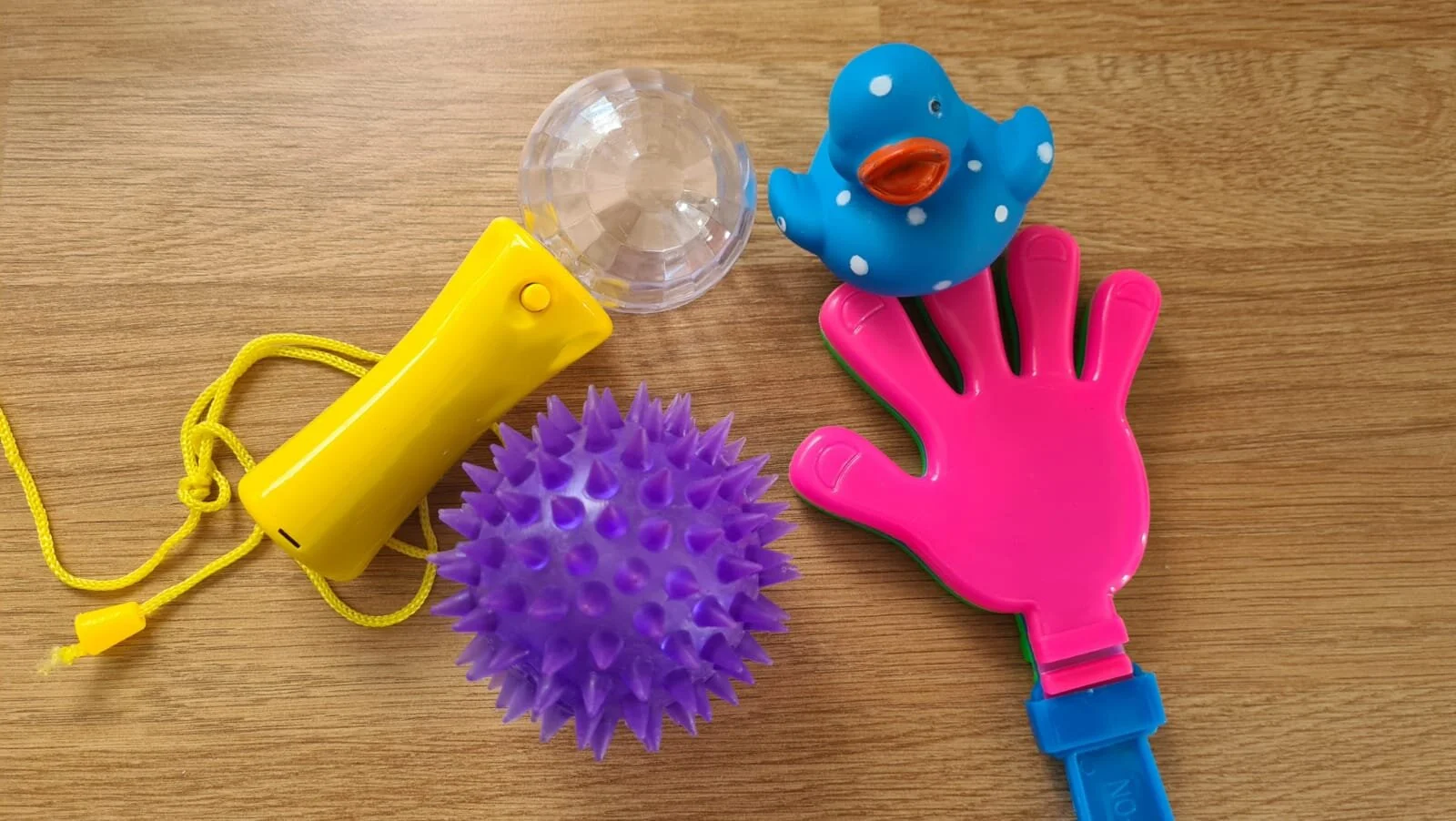Christmas - the season of joy, festivities, and, let's be honest, a touch of chaos. As parents, we've all been there, juggling the demands of the season while trying to keep our cool. Why is it that the most wonderful time of the year often comes with a side of emotional turbulence, especially for our little ones?
Read MoreAs things start to edge back to normality, parents are understandably anxious about how the pandemic has affected their young children’s development in many areas. One of the most concerning for parents is the impact on the development of their social communication skills.
Read MoreWe are big fans of Orchard Games in our house. We have quite a few and both oF my girls have really enjoyed playing the games.
If you haven’t tried them out yourself, the Orchard Games range has a variety of simple, structured games for playing with young children. Everything from lotto to shopping!
Read MoreAttention and listening skills are the bedrock of language development and allow us to learn other skills. Learning to focus is a really important part of early development that helps us to listen to others and engage in shared activities. But how can we help our children to develop their attention skills?
Read MoreI have read several articles about how modern children are ‘over scheduled’ with a plethora of structured activities and clubs and that modern children need more time for unstructured and outdoor play. Kids can become overtired when they are engaging in too many sports and clubs and need the less structured playtime to develop their imagination, communication and negotiating skills.
This all sounds reasonable but how do you know how many activities to choose, when is it too much?
Read MoreSeparation anxiety is a natural part of childhood development. Often, separation anxeity first kicks in when a baby is about six months old and can be a relatively regular occurrence throughout their toddler years. However, at times of significant change such as starting school, moving home, a new baby in the family or having a new nanny can bring the anxiety back to the surface.
Read MoreFingerplays (action songs) are a tool widely used at home and in early years settings. These songs are a wonderful way to support early development in a number of areas.
Read MoreLearning to listen is an important foundation for later development. This is particularly true for speech and language development. Being able to hear the difference between different sounds is an important first step. Then tuning into the language used by others to understand it, learn from it and copy it. As with so many skills, starting early and building in lots of practice makes all the difference. Try these tips to get your baby engaged in early listening.
Read MoreAttention and listening skills are the foundation skills on which communication and learning can be build. So, it’s a bit of a no-brainer that supporting the development of these skills needs to be top priority. If we focus on these first, then the support we give to other areas is likely to be more successful. There are lots of skills and approaches that can be used in helping young children to learn how to attend and listen to others. Attention buckets are one of my favourites. They are fun and super engaging, plus, they work! What more could we want, right?
Read MoreHelping children to practise their listening skills doesn’t need to be a major chore. In a blog ‘Getting Little Ones to Listen’ I share my top tips for supporting early listening. One of those tips is that practise makes perfect. Like any skill, the more we have opportunities to focus on and develop a skill the more likely we are to master and maintain it. Regular fun games are a great way to improve listening.Am I the only one who feels a little like we are living in an alternate universe? Life feels a little like my normal life, same family, same home and yet somehow everything is entirely different. To be honest I have taken a little time to adjust and settle into a new routine. I needed about 10 days to find a groove that worked for both my family and I. As a result, this blog was written a full 2 weeks after I had planned to write it.
Read MoreCommunication is a two-way exchange, back and forth. When chatting with adults we are better at giving each other a little space to speak (unless in the full flow of an argument or exciting tale). With young children we have a tendency to fill all of the communication time, when really we are aiming for 50/ 50. The grown up speaks or leads for half of the time and the child can respond or take the lead for the other half.
Read More
I had the pleasure of meeting Sarah when I attended her level 1 and 2 Makaton courses. She has continued to mentor me in my Makaton studies (and general parenting communication skills) and I very much look forward to joining her in her upcoming level 3 course. Sarah has such a beautiful, encouraging teaching style, her classes are informal and humorous which makes what she teaches stick and she shares great anecdotes to help us remember the signs and symbols. Sarah is obviously so passionate about her subject and that is very infectious. I would strongly recommend Confident Kids to anyone wishing to learn Makaton either as a beginner or someone looking to refresh their skills.
Juliet - Mum to 2 year old twins
Read MoreThere is a trap we sometimes fall into when enabling children with SEN to communicate – we introduce tools that they can use with an assigned adult or a small selection of adults. This is very helpful for getting children’s basic needs met. However, it does not give them access to a wider community or to a peer group. The tools themselves are great; it is the implementation that’s flawed.
Read MoreWhen introducing a new routine, visual support is particularly important as children have a lot to get their heads around! For children starting preschool or primary school we recommend using a weekly visual calendar.
Read MoreReading stories about school is a fun, non-threatening way to help children to begin to think about what school might be like. Talking about relatable characters, rather than themselves, may help them to gain some understanding before talking about their own feelings. There are so many lovely children’s books on this topic, here are a few of our favourites to share whilst preparing for transition into education.
Read MoreTo some degree we all use natural gesture to support our spoken communication. Signing builds on this by providing a tool which supports communication and interaction.
Read MoreTurn taking is a valuable skill which supports the development of early social interaction and communication skills. Developing an understanding of reciprocation through the exchange of two way communication is a vital foundation for shared attention and conversation skills later on.
Read More

















